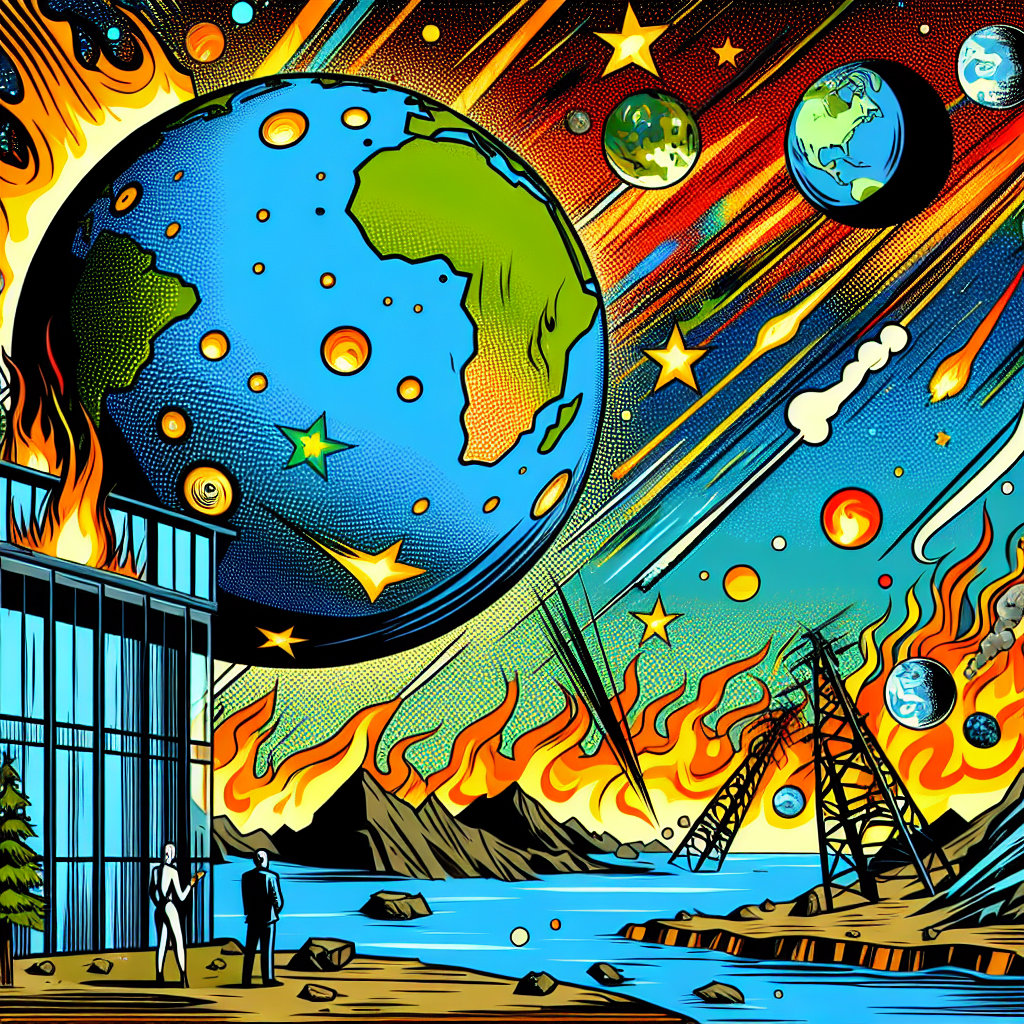The Earth's core is a scorching hot, spinning top of molten iron and nickel, divided into a solid inner core and a liquid outer core. It's responsible for generating our planet's protective magnetic field, which shields us from harmful solar winds and cosmic radiation. This magnetic field is crucial for life on Earth, as it prevents our atmosphere from being stripped away by solar flares and high-energy particles.
Imagine the Earth's core as a giant dynamo, with the liquid outer core acting as an electrical conductor. As the molten iron and nickel flow, they create electric currents, which in turn generate the magnetic field. This process is known as the geodynamo process. The faster the core spins, the stronger the magnetic field.
Now, if the Earth's core were to cool down significantly, the geodynamo process would slow down, leading to a weakening of the magnetic field. This would have catastrophic consequences for our planet. For one, the reduced magnetic field would allow more high-energy particles from the sun to penetrate the atmosphere, causing damage to our ozone layer and increasing the risk of skin cancer.
A cooler core would also affect the Earth's climate. The reduced heat flow from the core would lead to a decrease in volcanic activity, causing a decline in the release of greenhouse gases like carbon dioxide and sulfur dioxide. While this might seem beneficial, it would actually lead to a rapid cooling of the planet, as these gases help trap heat in the atmosphere. Imagine the Earth's climate as a delicate balancing act, with the core's heat flow playing a crucial role in regulating temperatures.
In addition, a cooler core would impact the Earth's plate tectonics. The reduced heat flow would slow down the process of plate movement, leading to a decrease in earthquakes and volcanic eruptions. While this might seem like a blessing, it would actually have devastating consequences for the Earth's geological processes. The slower plate movement would lead to a buildup of stress in the Earth's crust, causing massive earthquakes and volcanic eruptions when the plates finally do move.
The Earth's core is also responsible for the planet's rotation. As the core spins, it creates a torque that helps maintain the Earth's rotational speed. A cooler core would slow down the Earth's rotation, leading to longer days and nights. Imagine the chaos this would cause in our daily lives, from disrupting our sleep patterns to affecting the timing of satellite launches.
To understand the rate at which the Earth's core is cooling, let's consider the following:
- The Earth's core is cooling at a rate of about 100°C per billion years.
- This cooling rate is extremely slow, with the core currently at a temperature of around 5,000°C to 6,000°C (9,000°F to 11,000°F).
- At this rate, it would take billions of years for the core to cool down significantly, giving us ample time to adapt to any changes.
However, if the core were to cool down rapidly, the consequences would be catastrophic. The Earth's magnetic field would collapse, exposing us to harmful radiation and high-energy particles. The climate would rapidly cool, leading to a new ice age. The planet's rotation would slow down, disrupting our daily lives and satellite technology.
In conclusion, while the Earth's core is cooling down, the rate is extremely slow, giving us plenty of time to adapt to any changes. But if the core were to cool down rapidly, the consequences would be devastating, highlighting the importance of continued research into the Earth's core and its role in shaping our planet's climate and geology.
The Earth's core is a complex, dynamic system that plays a crucial role in maintaining our planet's habitability. By studying the core, we can gain insights into the Earth's history, from the formation of the planet to the evolution of life. The core is a reminder of the awe-inspiring complexity and beauty of the natural world, and it's up to us to continue exploring and understanding it.

Popular Space Questions
Find answers to the trending space questions being asked by our community on social media.
- How many galaxies are there in the universe?
- What would happen if a rogue planet entered our solar system?
- How far is Pluto from Earth?
- How many planets are in the Milky Way?
- How big is the Earth?
- What are the planets in order?
- How many planets are in our solar system?
- How big is the universe?
- What would happen if a pulsar's beam hit Earth?
- What if we found a way to manipulate gravity?